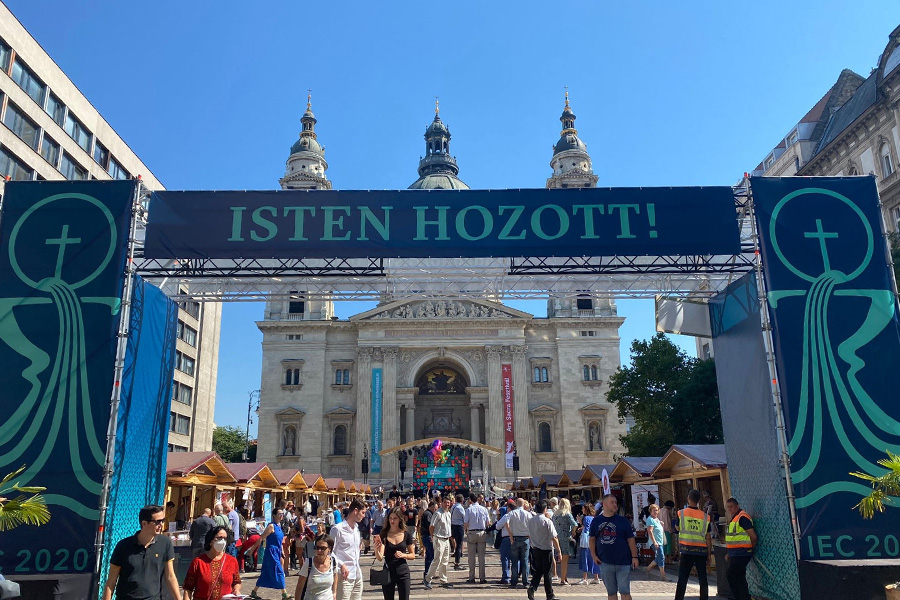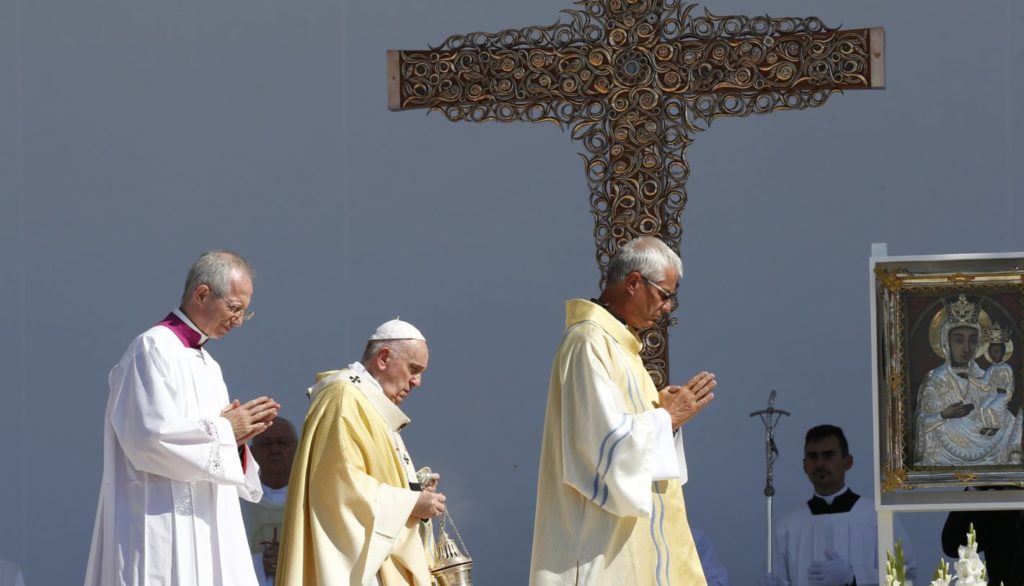Pope Francis celebrated an impressive Holy Mass at the end of the World Eucharistic Congress in the Hungarian capital, Budapest. Although he was only in the country for a few hours, the visit was a special gift for the faithful of Hungary.
"That the Vicar of Christ on earth comes to us is a special gift," Hungarian Deputy Prime Minister Zsolt Semjén, who is a devout Catholic, said of the Pope's visit to Hungary on Sunday. Other believers interviewed by the media expressed similar sentiments. After all, no pope had been to the Eastern European country since the 1990s. St. John Paul II had visited the country twice - in 1991 and 1996 - so this visit, which came at the end of the week-long International Eucharistic Congress, was all the more significant.
Also the Hungarian secular media have reported in great detail about this event. The news portal TelexThe left-liberal newspaper published an article on the occasion, including an article by the well-known Hungarian priest and youtuber András Hodász, in which he explained the essence of the Eucharist.
At the Plaza de los Héroes
A la Pope's Mass in Budapest's Heroes' Square 75,000 registered and many unregistered people attended. The media especially highlighted the contrast with which the Pope opposed the actions of the powerful of the world and the silent and non-violent reign of God on the cross: "The crucial difference is between the true God and the god of our self. How far is He who reigns silently on the cross from the false god who we would like to reign with force and reduce our enemies to silence! How different is Christ, who proposes himself only with love, from the powerful and triumphant messiahs, flattered by the world!"
Naturally, Hungarian politicians also tried to use the Pope's visit for their own purposes, especially since parliamentary elections will be held next spring. This autumn the hitherto very fragmented opposition is preparing to run for the first time with a joint candidate against the seemingly almost invincible government of Prime Minister Viktor Orbán and his party. Fidesz. Opposition supporters must choose an opponent for Orbán from among five candidates by October 10.
One of these candidates is the mayor of Budapest, Gergely Karácsony. In the days leading up to the Pope's visit, the municipal government team put up posters in Budapest with quotes from the Holy Father that can also be understood as a criticism of the Orbán government's policies: for example, related to solidarity, tolerance or charity, or against corruption.
But also the governmental side has strongly underlined the importance of the Pope's visit. Prime Minister Orbán and President János Áder met with the Holy Father on Sunday morning in a Romanesque-style room of the Museum of Fine Arts, located in Heroes' Square itself. Orbán gave the Pope a copy of a letter sent in 1250 by the then Hungarian King Béla IV to Pope Innocent IV. In it, the latter complains that Hungary is surrounded on all sides by hostile forces-"pagans and heretics [i.e., Orthodox]"-following the Mongol storm of 1241-1242, and asks the pontiff for help.
"I have asked Pope Francis not to let Christian Hungary disappear," Orbán wrote on Facebook after the meeting. The reference to the 13th century king's letter was obvious.
By the way, Béla IV had in his immediate family several women saints: his sister was St. Elizabeth of Hungary, his daughters were St. Kinga (Kunigunda) of Poland, St. Margaret of Hungary - who lived in a Dominican convent on today's Margaret Island, which is in the center of Budapest - and Blessed Jolanta, who, like Kinga, spent most of her life in Poland.

Within the framework of the Eucharistic Congress
Apart from the great interest in the visit of Pope Francis, the events of the Eucharistic Congress were almost lost in the public perception. The organizers had planned numerous important and inspiring events for the whole week in the Hungarian capital. Well-known personalities and ordinary faithful from Hungary and abroad testified about their faith or about their conversion. At an event for young people entitled "Boiling Point" on Friday evening, the well-known pop singer Ákos Kovács emphasized: "We believers do not want to offend anyone. Let us pray for those who think otherwise." The evening was marked by several testimonies: for example, German human rights expert Sophia Kuby described how, at the age of 18 and still unbaptized, she was able to experience the presence of Christ in the Eucharist at a Holy Mass in Amsterdam, totally unexpectedly. Father Róbert Proszenyák, in turn, told the audience how he had encountered God as a young man through a near-death experience.
At the beginning of the International Congress, 1,200 students from Catholic schools gathered at the Esztergom Basilica, the traditional cathedral of the Primate of Hungary. Here they were welcomed by the Cardinal Péter Erdő, Archbishop of Esztergom-Budapest. The young people then formed a huge multicolored cross in front of the monumental church building.
From Monday to Friday, every morning after Lauds, a cardinal of the Catholic Church gave a catechesis; the background of these representatives of the Church from five continents showed the diversity and global character of the Church. Various people gave witness to their faith on stages throughout the city. There were also numerous cultural and musical events, as well as a family day on Margarita Island. A special highlight was the Holy Mass with Cardinal Erdő on Saturday evening in front of the Hungarian Parliament, followed by a solemn Eucharistic procession.
Of special importance in the context of the celebrations was the Missionary Cross, made of oak and covered with elaborate bronze ornaments, which the well-known and deeply devoted goldsmith Csaba Ozsvári (1963-2009) made for the Urban Mission of the city of Budapest in 2007. The Cross had been blessed by Pope Francis in 2017, during an ad limina visit of Hungarian bishops to Rome.









